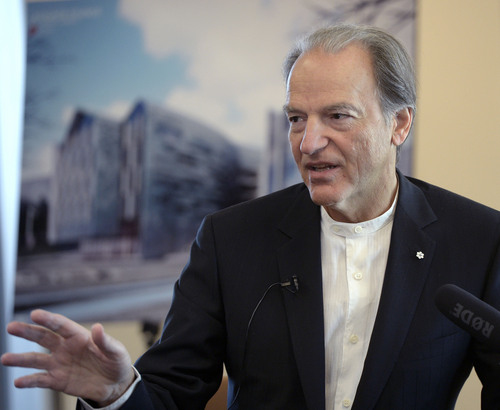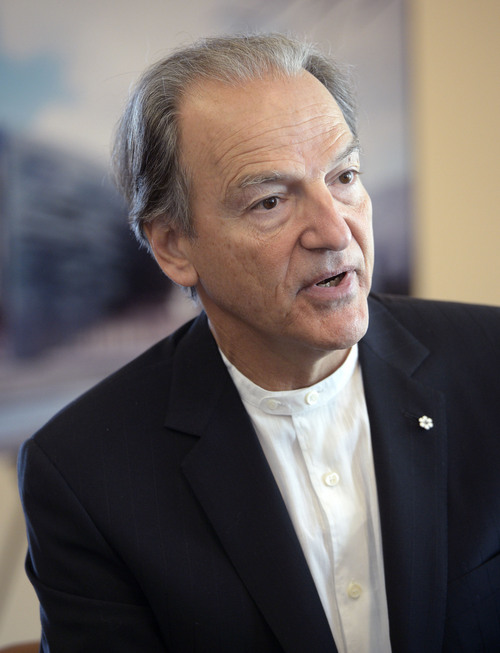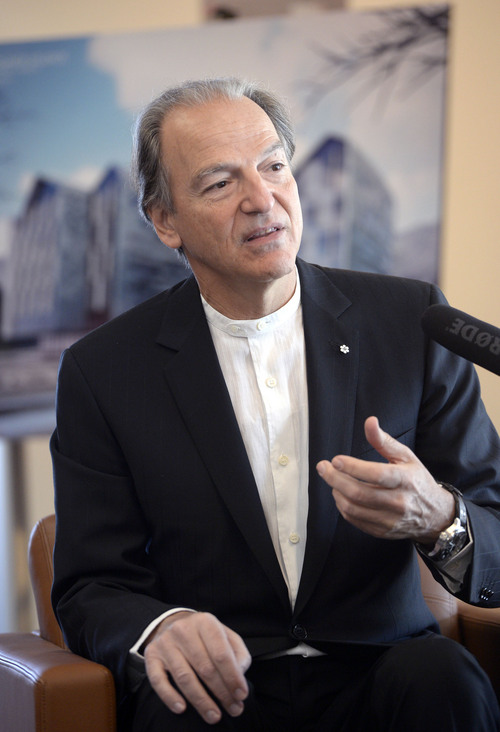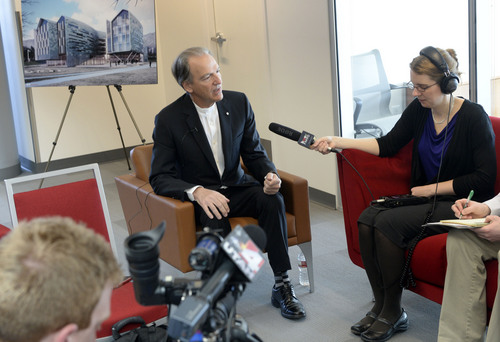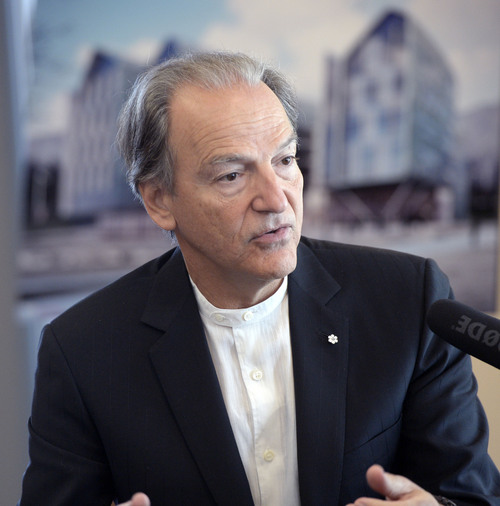This is an archived article that was published on sltrib.com in 2014, and information in the article may be outdated. It is provided only for personal research purposes and may not be reprinted.
It all started with a two-by-three-inch box ad in the Reno Gazette that said, "Royalty for sale."
Pierre Lassonde and his partner would put up $2 million to buy that royalty for Gold Strike mine in Elko, spending everything they had hours before a competitor showed up with a check.
"If I had not been there that morning, 9 o'clock, negotiated the deal, signed the deal, we would not have it," Lassonde said Tuesday at the University of Utah.
To date, that royalty has paid out more than $800 million, with more expected to come. It was the start of Franco-Nevada, a mining investment company he'd later sell for $3.2 billion.
"It's the most incredible mine that I have seen in my lifetime, and I'm not likely to ever see another one like it," he said. "As luck would have it, it's the best deal I've ever done in my life and it was the first deal."
Lassonde, who grew up in a small French-speaking city in Quebec, made a fortune pioneering the practice of purchasing royalties for precious metal mines in the early 1980s. In recent years, he has emerged as one of the most generous donors to the U., where he earned an MBA. Tuesday, the university announced a $12 million gift to fund a new building, Lassonde Studios, that will have housing for 412 students interested in entrepreneurship as well as work space for them to "gather, build prototypes and launch companies," according to a U. statement.
"We are giving the students a place to let their imagination run wild, run free," Lassonde said. "At the same time ... we want you to use it to actually do something."
He came to the U. in 1971 so his then-wife could study nuclear engineering. Though she was accepted to several top-tier institutions, Lassonde's undergraduate party-organizing skills back then were stronger than his engineering grades.
"I really didn't want to become an engineer, I wanted to become an entrepreneur," he said. He got into the U. "probably because they wanted my wife a lot more than they wanted me, and they said, 'If we take her, we have to take him.'"
Utah was a big change for the Canadians.
"When we arrived here, we didn't speak a word of English, we didn't know where we were going to be housed, and we had just enough money to last through Christmas," he said. "How stupid could that be, really?"
A woman named Joyce Dorton in the admissions department took the couple under her wing, finding them married student housing, a teaching assistant job for Lassonde that would help with the "huge" rent of $105 a month and night classes in English.
"That welcome, that incredible warmth we received, is I think what made it possible for us to be here and stay here," he said. And the education was pretty good too. "The MBA that I did here was key to my success in life. It was the best degree I ever had."
That made the U. a natural place to give back, and Lassonde said administrators' willingness to think differently about higher education convinced him to keep donating. His total so far is $25 million, including $13 million he gave in 2006 to start the Lassonde Entrepreneur Institute.
"We had an idea that didn't fit the mold of the university at the time because we cut across two faculties," he said. But "the university showed some flexibility and that, I thought, was really something special."
The new 148,000-square-foot Lassonde Studios project is slated to break ground next semester and be finished in 2016. The U. will take out a revenue bond to pay for the rest of the estimated $45 million price tag, and pay off the bond with student housing fees.
Twitter: @lwhitehurst


